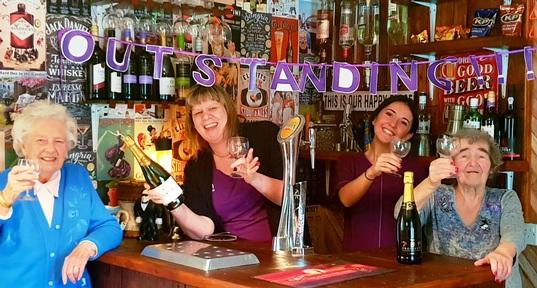Facebook-style online health communities could revolutionise patient care
Online Facebook-style communities could be key to improving patient care and help to provide data for new health and care innovations, a new study has found.
![]() Credit: Twin Design|Shutterstock.com
Credit: Twin Design|Shutterstock.com
The study conducted by Professor Eivor Oborn and her colleagues at Warwick Business School revealed that online communities like Health Unlocked, Mumsnet and The Blurt Foundation are helping people to come together and cope with illnesses and diseases such as diabetes, cancer and mental health problems.
The sharing of experiences and knowledge of hospitals, healthcare services and prescription drugs are leading to improvements in patient care.
As part of the research, Professor Oborn and her colleagues argue that the patients are being supported to manage and cope with their conditions, something that is being done more effectively outside of the traditional healthcare system through online communities. The communities provide a pool of knowledge for patients and healthcare professionals to explore.
Professor Oborn said: “We found patients can learn to care for themselves and each other in new and better ways through these online communities.
“Social support and patients’ experience and knowledge can be critical in the management of chronic long-term illnesses. We wanted to see how the millions of user contributions on these online communities can be used to help GPs and hospital doctors.
“By developing health trackers and getting patients to track their illness on these online communities this improves and speeds up the type of care clinicians can offer.”
Professor Oborn, Professor Michael Barrett of Judge Business School and Professor Wanda Orlikowski of MIT Sloan School of Management, conducted an in-depth study over four years, of a new social network website, like a Facebook for patients and those concerned about their health.
Online communities providing critical support
The paper was titled: ‘Creating Value in Online Communities: The Sociomaterial Configuring of Strategy, Platform, and Stakeholder Engagement’ and researchers interviewed 38 people from the online community start-up, 31 of those were employees and seven were stakeholders across the healthcare system and included members of firms developing patient focused online salutations.
The research revealed that online communities allowed the stakeholders to generate useful values for rating services, connecting people and tracking patients.
The study found websites were being used by patients to find out how services rated, how well different treatments and drugs work and the progress of patients during their illness as they updated their status.
Professor Oborn continued: “Through Artificial Intelligence (AI) and data analytics firms can leverage knowledge in these online communities to create value for healthcare research benefiting pharma companies and patients alike.

“Analytics allows you to understand in precise detail the symptoms of different patients and the effectiveness of different drugs for each type of patient.
“This can be very helpful with facilitating personalised medicine for patients, ensuring drug safety and effective treatment.
“Also, the power in these online communities to identify and attract relevant patients for clinical trials of new drugs is dramatic. For example, health organisations took almost six months to recruit 250 people by traditional means whereas it took one of these online communities just 48 hours.”
“These online communities are providing critical social support for others. This is also supported by a policy environment where the Government wants patients to be empowered and more accountable for their own health. Creating value from patient's’ own experiential knowledge is one of the untapped areas of managing chronic disease.”
The online communities enable patients with chronic medical conditions to support each other, while contributing to medical research and development by reporting their outcomes from different treatments - which can help medical providers and pharmaceutical firms, as well as improving outreach programmes.
Researchers discovered that as more patients joined online communities, their reputation grows and they are viewed as a ‘more legitimate member’ of the healthcare ecosystem and a platform for new digital capabilities. Professor Oborn added: “These new forms of online health knowledge are challenging the traditional basis of medical knowledge creation.
“It is really exciting to see the emerging business models and innovative collaborations that are developing through these online communities. The millions of user contributions in these online communities can be harnessed by start-ups to improve our health service. There is a huge amount of data on these websites, waiting to be mined and put to good use by developers.”
Latest Innovative Care News
 13-May-19
'Pink drink' brain cancer treatment rolled out across NHS in memory of Baroness Jowell
13-May-19
'Pink drink' brain cancer treatment rolled out across NHS in memory of Baroness Jowell
 25-Apr-19
Louis Tomlinson helps 83-year-old who lost wife to dementia complete bucket list
25-Apr-19
Louis Tomlinson helps 83-year-old who lost wife to dementia complete bucket list
 22-Mar-19
UK's top care home handyman takes residents to pub for pie and pint
22-Mar-19
UK's top care home handyman takes residents to pub for pie and pint
 12-Feb-19
Michael McIntyre's jokes tested to see if they stop elderly catching flu
12-Feb-19
Michael McIntyre's jokes tested to see if they stop elderly catching flu
 07-Jan-19
'We were lucky to find it': Family's delight as care home is rated Outstanding
07-Jan-19
'We were lucky to find it': Family's delight as care home is rated Outstanding